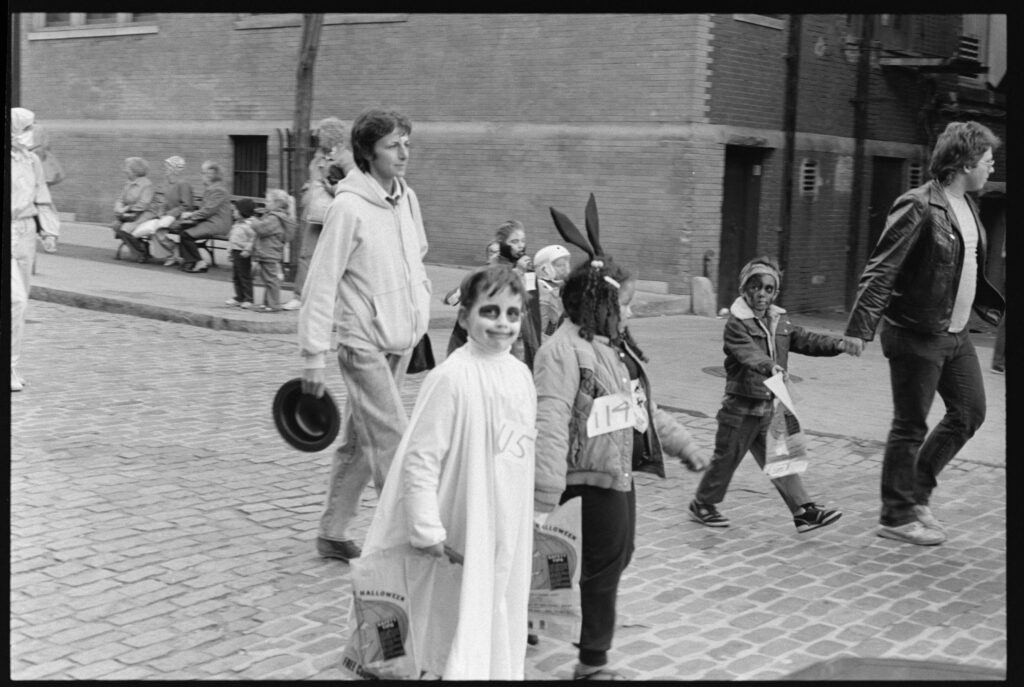October 31, many Americans celebrate Halloween by dressing in costumes and telling spooky tales. Children go from house to house—to “trick or treat”—collecting candy along the way. Communities also hold parades and parties. Halloween is also known as All Hallow’s Eve. It originated as the ancient Celtic festival of Samhain, meaning “summer’s end.” The autumnal holiday, with elements of magic and mystery, celebrated the link between seasonal and life cycles. Halloween, as we know it now, reflects the assimilation of various cultures. Learn more about Halloween with these resources.
Celebrate Halloween with these suggestions from ReadWriteThink.org.
In this lesson, students connect to the oral tradition of epic storytellers by sharing their own oral tales of ghosts and goblins and monsters. Use this “Ghost Story” told by Moses “Clear Rock” Platt, in the collection, Southern Mosaic: The John and Ruby Lomax 1939 Southern States Recording Trip.
Read about Halloween traditions and celebrations through newspaper articles found in Chronicling America: Historic American Newspapers. Start with the articles highlighted in the special topic feature on Halloween.
Students analyze scary stories to “break the code” of horror writing in this lesson and use what they learn to write scary stories of their own. Visit this page for scary stories for Halloween.
Here is a look at the origins of some of the classic Halloween traditions we know today.
Curious about the NCTE and Library of Congress connection? Through a grant announced by NCTE Executive Director Emily Kirkpatrick, NCTE is engaged in new ongoing work with the Library of Congress, and “will connect the ELA community with the Library of Congress to expand the use of primary sources in teaching.” Stay tuned for more throughout the year!
It is the policy of NCTE in all publications, including the Literacy & NCTE blog, to provide a forum for the open discussion of ideas concerning the content and the teaching of English and the language arts. Publicity accorded to any particular point of view does not imply endorsement by the Executive Committee, the Board of Directors, the staff, or the membership at large, except in announcements of policy, where such endorsement is clearly specified.

